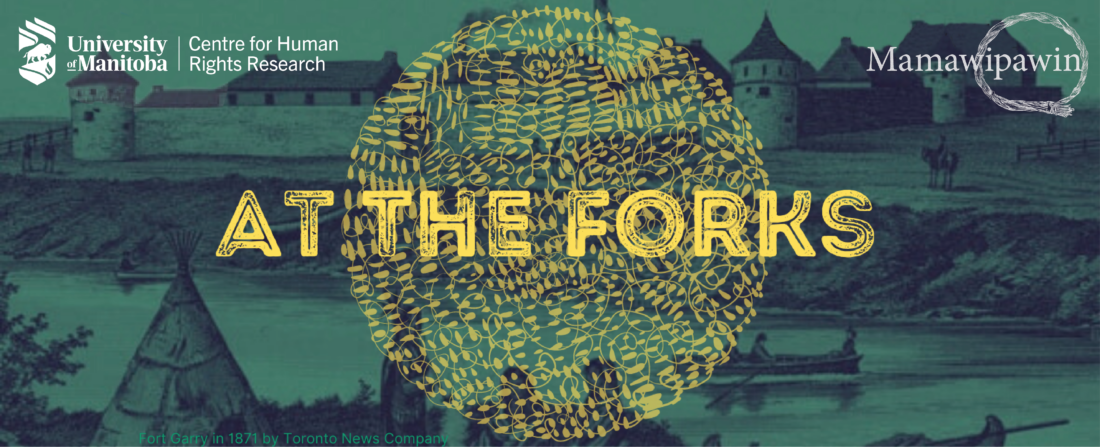Across Oceans of Law
March 14, 2022
Dr. Renisa Mawani
In 2022, the University of Manitoba’s Centre for Human Rights Research annual seminar series was held online, and ran in conjunction with a senior/honours course in the Department of History, Faculty of Arts. Our theme was “Historic Wrongs and Human Rights in Canada.” Leading scholars from across Canada discussed their research examining different moments of dispossession, unfreedom, incarceration, and expulsion, and how researchers and curators have navigated them.

Civilian Internment in Canada: Histories & Legacies
March 2022
Dr. Rhonda Hinther, Dr. Jim Mochoruk
In 2022, the University of Manitoba’s Centre for Human Rights Research annual seminar series was held online, and ran in conjunction with a senior/honours course in the Department of History, Faculty of Arts. Our theme was “Historic Wrongs and Human Rights in Canada.” Leading scholars from across Canada discussed their research examining different moments of dispossession, unfreedom, incarceration, and expulsion, and how researchers and curators have navigated them.

Resource Hub
Working with Journalists: Human Rights, Research and the Realities of the Newsroom
March 10, 2022
Lenard Monkman, Helen Fallding
In this interactive workshop Lenard Monkman (CBC Indigenous) and Helen Fallding (former political reporter, Winnipeg Free Press) provide guidance on how students and researchers doing human rights work can appropriately and effectively disseminate their research to a broader audience and get their work “out there”.

Resource Hub
Experiences of Enslaved Black People in Colonial Canada
April 7, 2022
Dr. Harvey Amani Whitfield
In 2022, the University of Manitoba’s Centre for Human Rights Research annual seminar series was held online, and ran in conjunction with a senior/honours course in the Department of History, Faculty of Arts. Our theme was “Historic Wrongs and Human Rights in Canada.” Leading scholars from across Canada discussed their research examining different moments of dispossession, unfreedom, incarceration, and expulsion, and how researchers and curators have navigated them.

Resource Hub
Questions that convey Indigenous Historical Perspectives (That Challenge How Canadians View Indigenous History)
January 31, 2022
Dr. Robert Alexander Innes
In 2022, the University of Manitoba’s Centre for Human Rights Research annual seminar series was held online, and ran in conjunction with a senior/honours course in the Department of History, Faculty of Arts. Our theme was “Historic Wrongs and Human Rights in Canada.” Leading scholars from across Canada discussed their research examining different moments of dispossession, unfreedom, incarceration, and expulsion, and how researchers and curators have navigated them.

Resource Hub
Spreading the Word: Statements, Interviews, and Oral Histories
January 17, 2022
Kaila Johnston, Misha Falk, Dr. Shayna Plaut Dr. Chantal Fiola
As part of the “Methods and Mediums” workshop series, the Centre for Human Rights Research hosted “Spreading the Word”: Statements, Interviews and Oral Histories on January 17th, 2022. The presenters all shared their own experiences, techniques and challenges with different kinds of verbal based data gathering/creating.

Human Rights and Resistance in 2021
December 10, 2021
Dr. Idris Elbakri, Leah Gazan, Isha Khan, Breanne Lavallee-Heckert, Louise Simbandumwe
For the first time, the Centre for Human Rights Research (CHRR) commemorated Human Rights Day (December 10th) with a community-generated discussion on Human Rights and Resistance in 2021.Moderated by the CHRR’s Director, Dr. Adele Perry, special guests Dr. Idris El Bakri, Leah Gazan, Isha Khan, Breanne Lavallee-Heckert and Louise Simbandumwe fielded questions submitted by the community — and one another. The conversation included: The most urgent human rights issues for 2022, promising avenues for Indigenous and Newcomer solidarity, joy as an act of resistance and the centrality of resistance in making change, the false distinction between Indigenous rights and human rights and the importance of understanding rights and responsibilities in the context of relationships, and so much more. Given all the events of this year, the discussion was timely and powerful bridging action and reflection, reclaiming and hope. The CHRR was honoured and privileged to serve as a host.

Resource Hub
The Constitution and the Declaration: Discussing Indigenous Rights with Dr. Patzer
August 18, 2021
Dr. Jeremy Patzer, Kayla Lariviere
The Centre for Human Rights Research (CHRR) presents “The Constitution and the Declaration: Discussing Indigenous Rights” with Dr. Jeremy Patzer.
Interviewed by Kayla Lariviere, CHRR/ISSIP Research Assistant, August 18, 2021.

Resource Hub
Doing the Work: What Settlers need to know about the Residential School System
August 12, 2021
Elder Betty Ross, Clayton Sandy, Dr. Sean Carleton, Dr. Brian Gettler, Dr. Erin Millions, Dr. Adele Perry, Dr. Andrew Woolford, Monique Woroniak
On Thursday, August 12th 2021, the Centre for Human Rights Research hosted “Doing the Work: A virtual Q & A on what settlers need to know about the residential school system in Canada.”This was a virtual Q&A session where our panel answered submitted questions and suggested available resources to help increase awareness and education about residential schools and the impact of colonialism in Canada.

At the Forks: Virtual Launch
June 25, 2021
Dr. Adele Perry, Dr. Kiera Ladner, Amy Jackson, Kayla Lariviere

The Centre for Human Rights Research (CHRR) presents: At the Forks: A Virtual Launch. ‘At the Forks’ is a project led by Dr. Adele Perry, Director of the Centre for Human Rights Research alongside Dr. Kiera Ladner and the Mamawipawin Centre for Indigenous Governance and Community-Based Research at the University of Manitoba. ‘At the Forks’ will feature accessible, open access writing that deals with the intersection of Indigenous and human rights in and around the prairies.

Contact Us
We’d love to hear from you.
442 Robson Hall
University of Manitoba
Winnipeg, Manitoba
R3T 2N2 Canada
204-474-6453
Quick Links
Subscribe to our mailing list for periodic updates from the Centre for Human Rights Research, including human rights events listings and employment opportunities (Manitoba based and virtual).
Traditional Territories Acknowledgement
The University of Manitoba campuses are located on the original lands of the Anishinaabeg, Ininiwak, Anisininewuk, Dakota Oyate, Dene and Inuit, and on the National Homeland of the Red River Métis.
Centre for Human Rights Research 2023© · Privacy Policy

